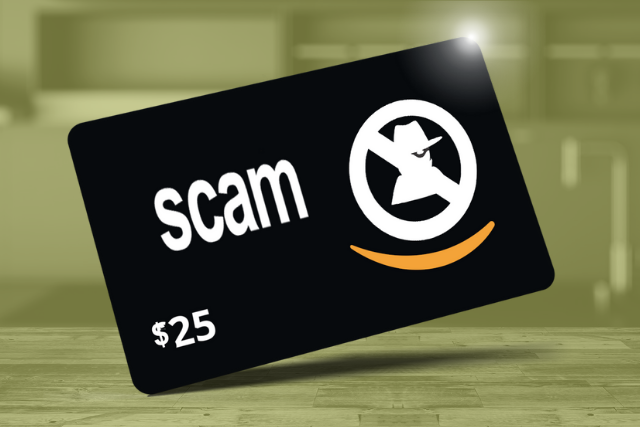
Gift cards are a popular and convenient way to give someone a gift. They’re also an increasingly common way for scammers to steal money from you.
How the scam works
Scammers place a call or email to an unsuspecting victim with urgent news or a convincing story. They then ask, or in most cases pressure, the person to send them a gift card, like an iTunes or Google Play card. This scam is usually performed under some sort of veil and will sound sincere. For example, the fraudster might contact you and claim to be the IRS, tech support, family members or even your boss.
You may ask “Why gift cards? That’s not even that much money.” That’s true. Compared to credit card fraud, it’s a relatively small amount of money they’re stealing from you. However, when you tally in the large number of victims that fall for this sham, it adds up quickly and becomes a very profitable operation for the thieves.
Here's an example of what a fraudulent gift card request may look like.
From: Molly Smith <messaging.mails@totallylegit.com>
Sent: Thursday, September 4, 2019 9:46 AM
To: Beth Nelson <bnels22@victim.com>
Subject: Need Your Help
Beth help me out. I need you to buy some gift cards at the store today, once you get it plz email me the codes on the back or take a pics of the card code and send it to me here. i will reimburse you, need ASAP.
Sent from my iPad
Depending on who the message appears to be from, the victim may feel pressure to quickly act on the transaction. If you were in this situation, would you feel comfortable questioning your boss about an urgent request? If the answer is no, then you're much more likely to fall victim to this sort of scam.
What to do if you fall victim to gift card fraud
If you paid a scammer with a gift card, tell the company that issued the card right away. Tell them the gift card was used in a scam and ask if they can refund your money. If you act quickly enough, you might be able to get your money back.
Here is a list of cards that scammers often request, along with the phone number you should call to report the scam.
| Amazon | (888) 280-4331 |
| Google Play | (855) 466-4438 |
| iTunes | (800) 275-2273 |
| MoneyPak | (866) 795-7969 |
The safe way to receive and send gift cards.
According to the Federal Trade Commission, here are some steps you should follow when giving and receiving gift cards as gifts.
- Buy gift cards from sources you know and trust. Avoid buying gift cards from online auction sites, because the cards may be counterfeit or stolen.
- Inspect a gift card before you buy it. Check that none of the protective stickers have been removed. Make sure that the codes on the back of the card haven’t been scratched off to show the PIN number. Report any damaged cards to the store selling the cards.
- Keep the receipt with the gift card. Whether you’re giving or getting, try to keep the original purchase receipt, or the card’s ID number, with the gift card.
- Read the terms and conditions of the gift card. Is there an expiration date? Are there fees to use the card, or for shipping and handling? Will fees be taken out every time you use the card, or after it sits unused for some period of time?
- Use the card as soon as you can. It’s not unusual to misplace gift cards or forget you have them. Using them early will help you get the full value.
- Treat gift cards like cash. If your card is lost or stolen, report it to the card’s issuer immediately. You might not get back the money left on the card – or you might get some, perhaps for a fee. You might need to show the receipt and the ID number on the card. Most issuers have toll-free telephone numbers you can call to report a lost or stolen card – find it on the card or online.
The next time someone comes to you asking for a gift card, remember that gift cards are for gifts, not payments. You have two options: Either you don’t engage with the requester, or if it appears to be coming from somebody you know, pick up the phone and ask them about it.
Source: https://www.consumer.ftc.gov/articles/paying-scammers-gift-cards
Like this article? Subscribe to our blog for more great insights about living your best life.




